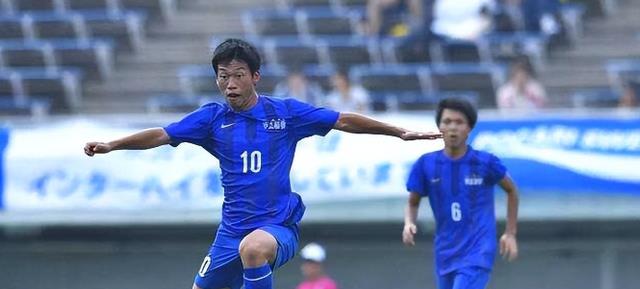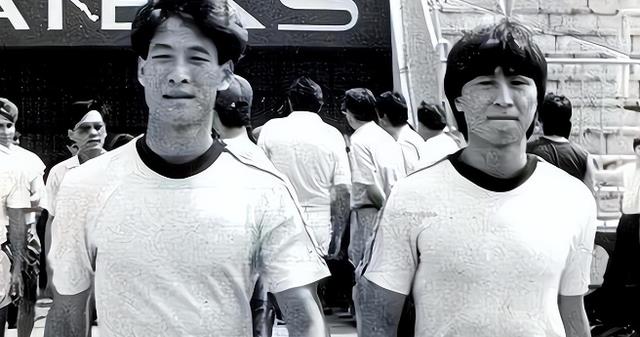The story of Gao Sheng and his son Gao Yuyang evokes mixed feelings. Gao Sheng, once a distinguished player who fought for Chinese football, ultimately watched as his son chose Japanese nationality, a decision filled with helplessness and practical considerations.

During that era, Liaoning FC was the epitome of Chinese football, unleashing wave after wave of offensive surges under Gao Sheng's leadership. Their teamwork and coordination were so impeccable that opponents feared them.

On the field, Gao Sheng always found the perfect position. His vision and passing skills were unparalleled in Chinese football at the time, creating opportunities for his teammates every time he had the ball.

In national team matches, Gao Sheng became the core of the team. His arrival made the national team's offense smoother, and fans pinned their hopes on him.

During the peak period of Chinese football, Gao Sheng's performance was nothing short of perfect. He not only had outstanding individual abilities but also boosted the morale of the entire team.

However, Gao Sheng was not content with this. Knowing that progress required broadening his horizons, he chose to develop in Japan, a decision that altered the course of his life.

In Japan, Gao Sheng not only learned advanced football concepts but also met his other half, gaining new beginnings in both life and career.

Gao Yuyang could be said to have been born with a silver spoon. He received the most professional football training in Japan from a young age, giving him more advantages than his peers.

At Kawasaki Frontale's youth training camp, Gao Yuyang quickly stood out. Coaches said he inherited his father's football talent and excelled even more in technical details.

During his youth training, Gao Yuyang displayed the characteristics of an all-round midfielder, capable of organizing attacks and actively defending, making him very popular in the Japanese football world.

Gao Yuyang went through several teams, which matured him. He understood that to establish oneself in the professional football circle requires even more effort.

Niigata Swan gave Gao Yuyang the opportunity to prove himself. His performance at the defensive midfield position became increasingly stable, gradually becoming an indispensable member of the team.

This decision was not surprising; Gao Yuyang grew up in Japan and was more familiar with the football environment and cultural atmosphere there.

Japan's professional league system is very complete, with clear promotion channels from youth training to professional teams, allowing young players to see their future prospects.

Gao Yuyang has established his career in Japan, and his technical characteristics are more suitable for Japanese football's style of play. Changing his nationality was a natural choice for him.

Although this decision sparked controversy in China, many fans expressed understanding, believing that everyone has the right to pursue better development.

The Toulon Cup brought more recognition to Gao Yuyang. His performance with the Japanese U22 national team demonstrated his strength.

As a defensive midfielder, Gao Yuyang showed strong defensive awareness and excellent organizational ability in the game, earning high recognition from the coaching staff.

At Niigata Swan, Gao Yuyang's performance was even more outstanding. He could accurately pass the ball and often made beautiful interceptions, making him a rare all-round midfielder in the J2 League.

Being selected for the season's best lineup is the best affirmation for Gao Yuyang, indicating that he has fully adapted to the rhythm and requirements of Japan's professional league.
Gao Yuyang's choice forces us to reflect on the problems in Chinese football. Why can't we retain the talents we cultivate?
Japan's football environment is indeed much better than China's. They focus more on grassroots training and value players' professional development.
Perhaps we should learn from Japan's experience, improve our football environment, and encourage more talented young people to develop in China.
This story tells us that football development cannot rely solely on temporary enthusiasm; it requires long-term investment and scientific planning.